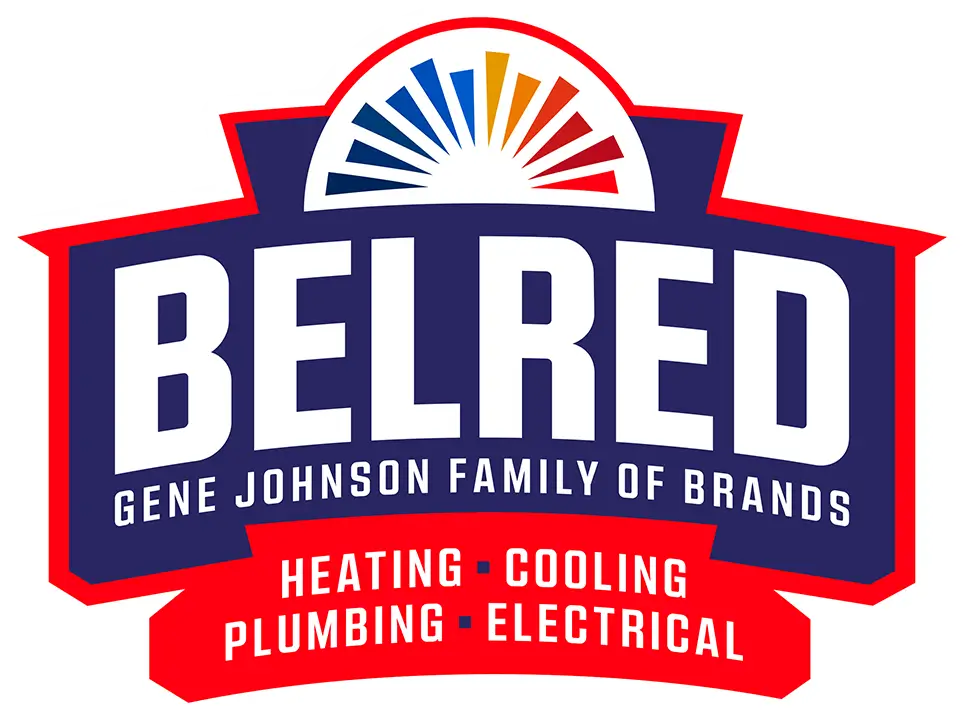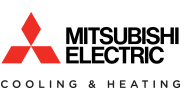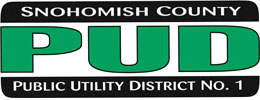When your home’s heat pump is on the fritz, you need quick, reliable repair service to keep your family comfortable – no excuses. Whether it’s strange noises, inadequate heating, or a total system failure, a malfunctioning heat pump is more than just an annoyance once winter’s chill sets in.
Trying to grin and bear it with a compromised unit is a surefire way to see energy bills skyrocket as it runs inefficiently struggling to keep up. Not to mention the very real risk of it completely crapping out and leaving you in the cold during the next deep freeze.
That’s why for over 38 years, Mill Creek homeowners have called on the heat pump repair pros at BelRed to get their systems back to peak performance. From pinpoint diagnostics to surgical component replacements, our team has the hard-earned expertise and training to tackle any repair need by the book.
We work on all major heat pump brands and models, repairing everything from basic air-source units to geothermal ground loops. Our techs stay up-to-date on the latest techniques and equipment to deliver a lasting fix right the first time, no cutting corners.
Don’t let heat pump problems leave your home’s comfort hanging in the balance. Dial BelRed at (855) 345-6161 to schedule your repair service today! We’ll get that heating system running like a top again in no time flat.
(855) 345-6161BelRed’s Heat Pump Repair Process in MIll Creek, WA
When your heat pump needs some professional TLC, we follow a comprehensive, multi-step process to get it back into fighting shape:
Symptom Breakdown
First up, we’ll have one of our seasoned repair techs pay you a visit to get the full rundown on what kinds of symptoms and performance issues you’re noticing. Every detail counts in narrowing down potential culprits.
System Inspection
From there, it’s time for a thorough inspection and diagnostic testing of the entire heat pump system – indoor/outdoor units, electrical connections, refrigerant levels, you name it. We’ll run the full gamut of tests to pinpoint that root problem.
Fix Plan
Once we identify the issue, we’ll walk you through our recommended repair plan to resolve it. We’ll lay out all options whether it’s a basic fix or more extensive component replacement, with upfront pricing every step of the way.
Surgical Repairs
With your go-ahead, our certified techs will get to work making those surgical repairs following manufacturer guidelines to a T. We resolve problems, not just mask symptoms, to deliver a lasting heating solution.
Testing & Calibration
Before we finalize the job, we’ll do comprehensive testing of the entire system to ensure everything is operating properly and at peak efficiency. We’ll make any final calibrations and walk you through the repair process.
Don’t let heat pump problems leave you out in the cold this winter. Call BelRed at (855) 345-6161 to schedule your repair service today!
Heat Pump Repair FAQ
- What are the Most Common Parts That Need Repair in a Heat Pump?
- How Can I Improve My Heat Pump’s Efficiency After a Repair?
- Why Calling a Pro for That Heat Pump Repair Pays Off
- What Should I Do If My Heat Pump Is Not Turning On?
- How Does Mill Creek's Weather Affect the Performance and Repair Needs of Heat Pumps?
- What Should I Know About Heat Pump Repairs in Historic Homes in Mill Creek?
- Can Mill Creek’s Pollen Levels Affect My Heat Pump’s Performance?
- What are the Common Heat Pump Issues Faced by Mill Creek Residents?
- How Can I Ensure My Heat Pump Performs Well During Mill Creek Winters?
What are the Most Common Parts That Need Repair in a Heat Pump?
Even with diligent maintenance, no heat pump lasts forever without some parts needing to be repaired or replaced over time. The combination of constantly running motors, changing refrigerant pressures, and exposure to our lovely Mill Creek weather eventually takes its toll.
While no two repair situations are exactly alike, there are some components that tend to be more failure-prone and common culprits when heating/cooling issues arise:
Compressors
This hardworking heart of the heat pump’s refrigerant system has to be able to pump that refrigerant between the indoor/outdoor units under extreme pressure. Compressor failures from wear, lubricant issues, or electrical overheating are a frequent repair need.
Fans & Motors
Between the indoor blower and outdoor fan motors, there’s a lot of constantly running components prone to burnout from overheating or mechanical failures over time. Fans and motor replacements are super common.
Reversing Valves
This valve is what allows heat pumps to switch between heating and cooling modes by reversing refrigerant flow direction. When they get stuck or leak refrigerant, you’ll get locked into just heating or cooling mode.
Sensors & Controls
Heat pumps rely on an array of sensors and control boards to monitor system operations and cycle different components on and off as needed. Failures here can lead to erratic performance issues.
Refrigerant Leaks
Whether it’s the coils, lines, or just fittings, refrigerant leaks will slowly cause a heat pump’s efficiency to plummet over time as charge levels drop. Leak repairs and refrigerant recharging is needed periodically.
While some of those parts are quick repairs, others like compressors or coil leaks can get pricey in a hurry on an aging heat pump system. Knowing when to draw the line and look at full replacement is key.
How Can I Improve My Heat Pump’s Efficiency After a Repair?
So your heat pump system just got patched up and is back in working order after a much-needed repair. But before you just fire it back up and forget about it, take a little time to ensure you’re maximizing its efficiency moving forward. A few simple steps can go a long way:
Change Those Air Filters
This one’s Heating & Cooling 101, but you’d be amazed how many homeowners let it slide. Clogged and dirty air filters make your heat pump work harder by restricting airflow. Swap them out for fresh filters after any repair to remove that unnecessary strain.
Clear Away Obstructions
While you’re at it, take a stroll around your outdoor heat pump unit and clear away any vegetation growth, dirt/debris buildup, or obstructions blocking free airflow. Those outdoor coils need unimpeded air circulation to operate at peak efficiency.
Give It a Rinse
Speaking of that outdoor unit, break out the garden hose and give those coils a gentle rinse from time to time. You’d be amazed how much gunk can accumulate and impact heat transfer over time. Just be sure to cut the power first!
Seal Up Air Leaks
Any air leaks or drafts in your home make your heat pump work overtime by constantly having to reheat/recool that escaping air. Do a quick audit with a stick of incense and seal up any drafty areas you find.
Consider a Tune-Up
While your repair tech is already on-site, it’s not a bad idea to have them perform a full professional tune-up at the same time. They’ll thoroughly inspect and calibrate the entire system to restore peak operating conditions.
Little maintenance habits like these allow you to maximize that repair investment and keep your heat pump system running as efficiently and reliably as possible. Don’t let a simple fix get negated by ignoring upkeep!
Why Calling a Pro for That Heat Pump Repair Pays Off
When your heat pump starts acting up, that YouTube video on DIY repairs can start looking pretty tempting. You’ll save some cash and get to feel all handy, right? But before you grab those tools, here are a few reasons why bringing in the HVAC pros is usually the smarter play:
They’ve Been There, Done That
Experienced heat pump techs have seen it all before. They know all the common issues, troubleshooting tests to run, and proper fix procedures like the back of their calloused hands. For a DIYer, it’s gonna be a frustrating game of throwing darts.
The Right Tools for the Job
Trying to track down a heat pump fault with just a basic multimeter is like changing your car’s oil with a shovel. The pros roll up with all the fancy diagnostic tools, gauges, and meters to quickly pinpoint that root issue.
Handling Refrigerant
Making any repairs that involve opening up a heat pump’s refrigerant lines is an absolute no-go for unlicensed homeowners. Handling those systems requires proper EPA certification to stay legit and avoid any environmental headaches.
Access to Repair Parts
When that compressor or reversing valve craps out, good luck finding those specialized heat pump components at your local hardware store. Repair companies have direct access to order any manufacturer part needed.
Workmanship Warranties
Most reputable HVAC contractors provide labor warranties for their repair work in case that fix doesn’t quite stick initially. Good luck getting that same warranty from the YouTube University.
At the end of the day, today’s heat pumps are just too complex and tightly engineered for weekend warriors to go poking around without proper training. One little misstep can lead to costly mistakes and safety issues real quick. Calling in the pros is worth the added cost to get it done right the first time.
What Should I Do If My Heat Pump Is Not Turning On?
You go to crank up the thermostat and…nothing. Your heat pump system just sits there, quiet as a mouse, leaving you in the cold (or heat). Before you start sweating through a meltdown, there are a few basic troubleshooting steps worth trying first:
Do a Hard Reset
Sounds simple, but you’d be amazed how often a hard power reset can get things going again. Locate the safety switch near your indoor unit and flip it all the way off for a couple minutes before turning it back on. This clears out any weird electrical gremlins.
Check the Breakers
If that doesn’t do the trick, head down to your home’s electrical panel and ensure the breaker hasn’t tripped for your heat pump system. Flip it all the way to the off position and then back on to reset it.
Swap Thermostat Batteries
While you’re at it, go ahead and swap out the batteries in your thermostat too, just to be safe. Weak batteries can prevent it from sending proper run signals.
Clear Outdoor Unit
If those basic resets don’t revive your heat pump, go take a look at the outdoor condenser unit. Make sure there isn’t a thick buildup of snow, ice, or debris covering the coils and fan that’s preventing it from operating.
Listen for Strange Sounds
With the power cycled back on, go give the outdoor unit a listen. If you hear any buzzing, whirring, or clicking sounds, it could indicate an electrical issue that needs professional diagnosis.
If you’ve tried all those basic restart tips and your heat pump still refuses to turn over, it’s probably time to call in the repair professionals. They’ve got the tools and know-how to properly diagnose and repair whatever electrical, thermostat, or mechanical fault is causing that no-start situation.
How Does Mill Creek's Weather Affect the Performance and Repair Needs of Heat Pumps?
Let’s face it – our weather around here can be pretty bipolar at times. We get those gorgeous, mild fall and spring days peppered with intense cold snaps and the occasional heat wave. That kind of climate extremes really keeps heat pump systems earning their keep.
During those chilly winter stretches, air-source heat pumps have to work extra hard trying to pull what little heat energy there is from the frigid outside air. They’re constantly cycling on and off, putting major strain on components like compressors, fans, and defrost controls.
Excessive cycling and running in low temperatures leads to a higher risk of parts failures or refrigerant leaks developing over time. Those compressors and reversing valves can only take so much abuse before calling it quits.
Then you flip over to summer, and suddenly those same heat pumps are battling through scorching hot days trying to keep your place cool and dehumidified. That persistent high heat puts equal amounts of stress on the system, just from the opposite end of the spectrum.
Even ground-source geothermal heat pumps, which excel at maintaining efficiency year-round, still have to overcome Mill Creek’s temperature swings. Those loops have to work harder anytime temperatures stray too far from those ideal 50-55°F zones.
Our area’s propensity for weather extremes in both directions creates a really tough operating environment for any heat pump system. It’s why consistent professional maintenance is so crucial to catching small issues before they snowball into major repairs or premature system failures.
What Should I Know About Heat Pump Repairs in Historic Homes in Mill Creek?
Mill Creek is loaded with beautiful historic homes that ooze charm and character. But those older properties also tend to come with their fair share of quirks and challenges when it comes to HVAC systems like heat pumps. If your heating repair involves one of these vintage dwellings, here are some potential curveballs to be aware of:
Tight Workspace Constraints
A lot of these historic homes were built long before modern HVAC was a consideration. Finding easy access to replace bulky indoor and outdoor units can be a nightmare. Tight attics, stairwells, and crawlspaces are the norm, requiring some creative maneuvering.
Outdated Electrical Situations
From knob-and-tube wiring nightmares to undersized fuse boxes, historic homes frequently have electrical systems that need to be upgraded to handle new heat pump power demands safely and effectively. That’s an added repair complexity.
Insufficient Insulation
Proper insulation is key to heat pump efficiency, but it’s often severely lacking in these older constructions. Blocked airflow through walls and ceilings can severely hamper that shiny new system’s performance.
Incompatible Ductwork
Many of Mill Creek’s historic gems relied on radiant heat or window AC units originally. Trying to retrofit existing ductwork to accommodate a new heat pump can often require expensive renovations.
Exterior Obstacles
From thick vegetation to tight yards and setback limitations, installing those bulky outdoor condenser units while preserving the exterior’s historic charm is its own challenge.
The good news is experienced HVAC contractors have seen and conquered these historic home hurdles many times before. With some creative problem-solving and advanced planning, they can design heat pump solutions that seamlessly integrate into even the most quirky older property. Just expect some potential added costs to handle those unique constraints properly.
Can Mill Creek’s Pollen Levels Affect My Heat Pump’s Performance?
If you suffer from seasonal allergies around here, you know just how intense our pollen levels can get certain times of the year. That thick, yellow-green dusting of tree and grass pollen seems to coat everything in sight. And unfortunately, your home’s heat pump system isn’t immune.
All that pollen can wreak havoc by accumulating on your heat pump’s indoor and outdoor coils and fins. When those delicate components get caked up, it severely restricts airflow which is the lifeblood of efficient operation.
As airflow drops, your heat pump has to work harder and run longer cycles to maintain temperatures. That increased strain leads to higher energy costs and accelerated wear and tear on components like compressors and motors.
Pollen buildup on the indoor side can also lead to more frequent filter clogs. Those restricted filters further compound airflow issues while circulating allergens throughout your home’s air supply.
Proper preventative maintenance is key to staying ahead of pollen buildup. Having your HVAC tech regularly hose off those outdoor coils and clean the indoor components provides a fresh slate. Upgrading to better air filtration can help as well.
If you start noticing a drop in cooling or heating performance during those peak pollen periods, it’s likely time for a system rinse and tuneup. A little routine maintenance prevents that pollen punch from delivering a knockout blow to your heat pump’s efficiency.
What are the Common Heat Pump Issues Faced by Mill Creek Residents?
As an HVAC contractor serving the Mill Creek community for over 38 years, we’ve seen just about every heat pump issue in the book. This area’s unique climate and home construction trends tend to produce some very common repair calls and frustrated homeowners. Here are some of the biggest heat pump headaches we frequently encounter:
Frozen Outdoor Units
When our infamous cold snaps hit, air-source heat pumps have to work overtime trying to pull what little heat energy exists from that frigid air. If conditions are just right (or wrong), excessive defrosting can cause the outdoor unit to become an ice sculpture, halting operations completely.
Short-Cycling Issues
Lots of Mill Creek homes, especially those newer builds, are on the smaller side with tight ductwork runs. Having an improperly sized heat pump constantly short-cycling can lead to hot/cold rooms, humidity issues, and crazy electric bills.
Air Handler Failures
The air handlers for heat pump systems tend to be located in some tight, awkward spaces like attics or closets in Mill Creek homes. When they fail, getting that bulky new unit maneuvered into place becomes a major operation.
Ductwork Deficiencies
Whether it’s aging, damaged, or just poorly designed from the start, ductwork flaws are one of the most common heat pump efficiency killers we see. Restricted airflow can negate any benefits of a new system installation.
Thermostat Troubles
You’d think setting a thermostat would be an easy task, but we get no shortage of calls about erratic heating/cooling, wrong temp readings, or units that just won’t respond to that smart thermostat brain.
From dealing with our area’s temperature extremes to working around construction quirks, keeping heat pumps running reliably around Mill Creek takes some real expertise. Having a great HVAC partner in your corner prevents those little headaches from becoming migraines.
How Can I Ensure My Heat Pump Performs Well During Mill Creek Winters?
Our winters around Mill Creek can be pretty Jekyll and Hyde – gorgeous sunny days one week, followed by a ruthless arctic blast the next. Those temperature swings and periodic deep freezes really put home heat pumps through the wringer. But a little preventative care goes a long way in ensuring your system can handle whatever Old Man Winter dishes out:
Stay On Top of Maintenance
This one’s Heating 101, but it’s so crucial it’s worth repeating. Having an HVAC pro give your heat pump a thorough preseason tune-up allows them to clean coils, check refrigerant levels, calibrate defrost controls – the whole nine yards to get it ready for the grind ahead.
Clear Snow/Ice Buildup
When those blizzard conditions hit, be diligent about using a broom to regularly brush any excessive snow and ice buildup off your outdoor condenser unit. Allowing it to become completely encased is just asking for a refrigerant line freeze and system shutdown.
Utilize Backup Heat
If you have an air-source heat pump backed by a gas furnace, don’t be afraid to utilize that secondary heat source when temps really plummet. Forcing an air-source system to run non-stop in sub-zero conditions puts immense strain on components.
Upgrade Insulation
Proper insulation is key to preventing heat loss and reducing your heat pump’s workload. If your home has subpar insulation, especially in attics and crawlspaces, consider an upgrade to cut down on wasted energy.
Seal Air Leaks
In that same vein, take time to caulk and seal any drafty windows, doors, or other air leak sources around your home. That escaping air is just wasted money forcing your heat pump to run more frequently.
With a little seasonal prep and vigilance, you can maximize your heat pump’s performance and efficiency even through the worst of Mill Creek’s winter conditions. Don’t wait until you get left in the cold to give it some TLC!
Your Home's Comfort Is Safe With BelRed's Expert Heat Pump Repairs
When your heat pump is giving you grief, you need prompt repairs from a team you can truly trust. For over 38 years, Mill Creek homeowners have turned to the certified professionals at BelRed to get their heating and cooling systems back up and running at peak performance.
From accurate diagnostics to surgical component replacements, our experts have the experience and training to properly tackle any heat pump repair need. We work on all major makes and models, delivering lasting fixes right the first time, no guesswork.
Our technicians stay up-to-date on all the latest techniques and equipment through extensive ongoing training. With their skilled workmanship, you can feel confident your heat pump repair will be by the book and built to last.
And because we understand how repair costs can add up, BelRed offers flexible financing solutions to fit any budget. We’ll work our tails off to find an option that makes sense and provides complete peace of mind.
Don’t let heat pump problems leave your home’s comfort hanging in the balance. Call BelRed at (855) 345-6161 to schedule your repair service today! We’ll get that heating and cooling system operating like new again in no time.
YEARS
Since 1986
The Gold Standard in Heating & Cooling
At BelRed, we bring you greater comfort and efficiency to your home. We offer a Lifetime Limited Warranty on all heating, cooling, plumbing & electrical jobs – backed by our expert HVAC technicians. Whether you are in the market for a heat pump, mini-split, furnace, or air conditioner, we have an extensive list of high-end products.
BelRed Heating, Cooling, Plumbing & Electrical is licensed, bonded and insured. From a wide offering of services to an extensive product line, BelRed brings innovative solutions to every job. Call us today and always have a friend in the home services industry.
What Our Clients Say
Dustin H. Nick E., and Cody M. installed our new heat pump in a professional manner: All work was done as promised and onschedule. All three technicians deserve a 5 star rating.
Russ H was here today and fixed a problem that I had with my A/C. I’ve had several people coming before and never had success but he took the time and his great knowledge and fixed my problem. I would love to thank him for that a million times! Jill Motaman
Ray B and Nick E did an excellent job installing our new furnace. I was also pleased with the service that I received from Jake the day before regarding the inspection of the heating system and recommendations for correcting the problems we were having.
Great experience from start to finish. Richard was able to provide several options for water heater replacement that included replacement, upgrade and enhancement options. Installation was quick and neatly done. You’d never have known someone just did a replacement and installation. I think the area was cleaner after he left than before he got there.









